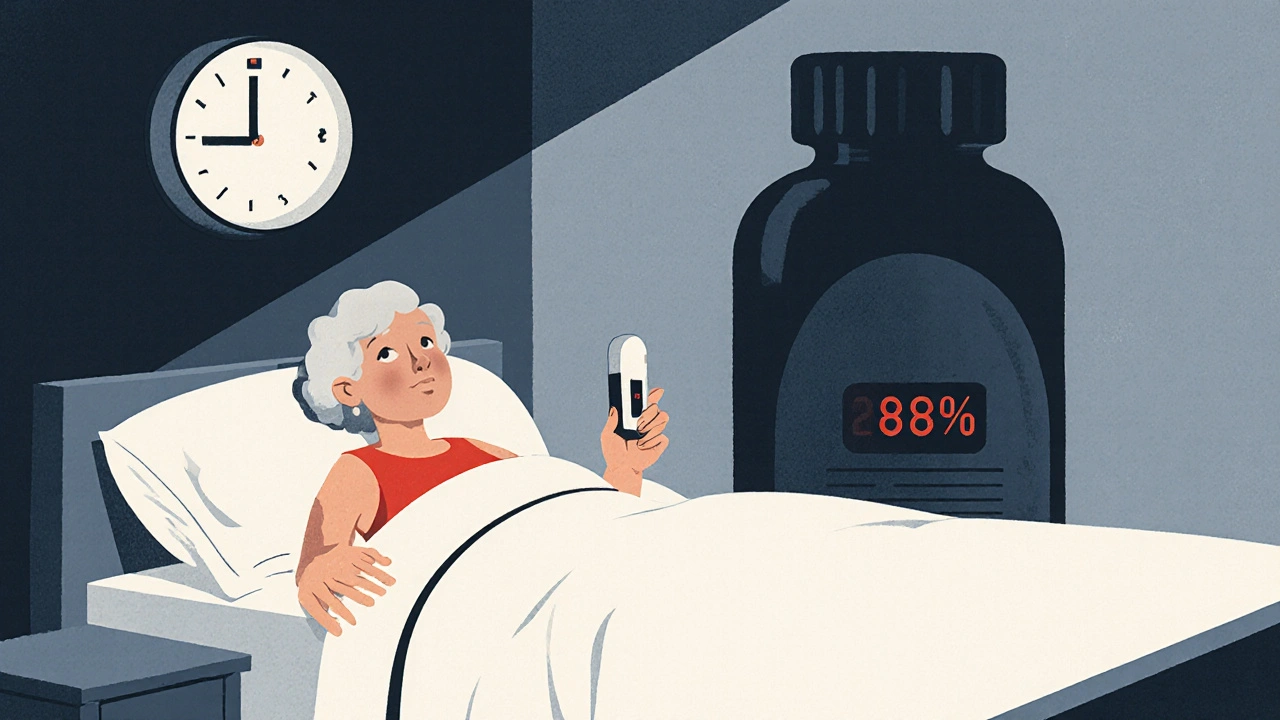Drug-Induced Respiratory Depression: Causes, Risks, and What You Need to Know
When your breathing slows down because of a medication, that’s drug-induced respiratory depression, a dangerous drop in breathing rate or depth caused by certain drugs that affect the brain’s control of respiration. Also known as medication-related respiratory failure, it’s not just a hospital emergency—it can happen at home if you’re taking common prescriptions or mixing substances without knowing the risks. This isn’t rare. Opioids like oxycodone, benzodiazepines like Xanax, and even some sleep aids can trigger it, especially when combined. The brain’s respiratory center gets suppressed, and suddenly, you’re not getting enough oxygen. It doesn’t always look like an overdose. Sometimes it’s just feeling unusually drowsy, or noticing you’re not taking deep breaths anymore.
People often don’t realize how easily this can happen. A doctor prescribes a painkiller after surgery, and you add a sleeping pill because you can’t rest. Or you’ve been taking a muscle relaxant for years, then start using alcohol to unwind. These combinations are silent killers. Even people who’ve used opioids safely before can suddenly develop respiratory depression if their tolerance changes, their liver function drops, or they take a higher dose than prescribed. The risk goes up sharply with age, chronic lung disease, or if you’re on multiple central nervous system depressants. opioid overdose, a leading cause of drug-induced respiratory depression, often starts with slow, shallow breathing before turning into complete respiratory arrest. sedatives, including barbiturates and certain antipsychotics, can do the same thing—even at therapeutic doses in vulnerable patients.
You don’t need to be addicted to be at risk. It’s not just about street drugs. Prescription medications are the most common culprits. If you’re on a long-acting pain med, a muscle relaxer, or a sleep aid, pay attention to how you feel after taking them. Do you feel foggy even after a full night’s sleep? Do you wake up gasping? Has someone told you you stop breathing while asleep? These aren’t normal side effects—they’re warning signs. respiratory failure, the end-stage result of untreated drug-induced respiratory depression, requires immediate medical intervention. The good news? It’s often preventable. Knowing which drugs to watch, how to avoid dangerous combos, and what symptoms to track can save your life—or someone else’s.
Below, you’ll find real-world guides on medications that can trigger this condition, how to spot early signs before it escalates, and what to do if you’re taking drugs that affect your breathing. From opioid safety to understanding why some pills cause drowsiness that turns dangerous, these articles give you the facts—not the fluff—so you can protect yourself and those you care about.
Respiratory Depression from Opioids and Other Medications: Critical Signs You Can't Ignore
Respiratory depression from opioids is a silent, life-threatening side effect that can happen even with prescribed medications. Learn the critical signs, who’s at risk, and what to do before it’s too late.
Read more
